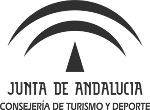Paddling upstream
Facilitators and barriers to combine sport and studies
Abstract
Objective
The aim of this study is to analyze the facilitators and barriers in the arrangement of academic and athletic aspects in high performance rowers.
Method
Participated 11 rowers (n = 5 boys and n = 6 girls). The research conducted from a qualitative approach, framed holistic career development model, by means of semi-structured interviews. A content analysis of the interviews was conducted in five levels from the theoretical model used: athletic level, psychological level, psychological level, academic/vocational level and financial level. These categories were analyzed in terms of two others: facilitators and barriers.
Results
Facilitators and barriers in sports, psychological, psychosocial, academic and financial levels are shown. Facilitators are: Intrinsic motivation, reducing daily pressure, flexibility teacher, academic scholarship and sports and support of social groups. As barriers: Long concentrations coincidence workouts/classes, stress, fatigue, little time for leisure, distance from the school to the training and non-economic compensation as an athlete.
Conclusions
Knowing the benefits of educational training compatible with career from the personal, social development, health, financial and labor and anticipating sports withdrawal, it is essential that the sport psychologist provide, directly or indirectly (through rowers coach), basic time management resources and strategies to become self-sufficient in his dual career.


